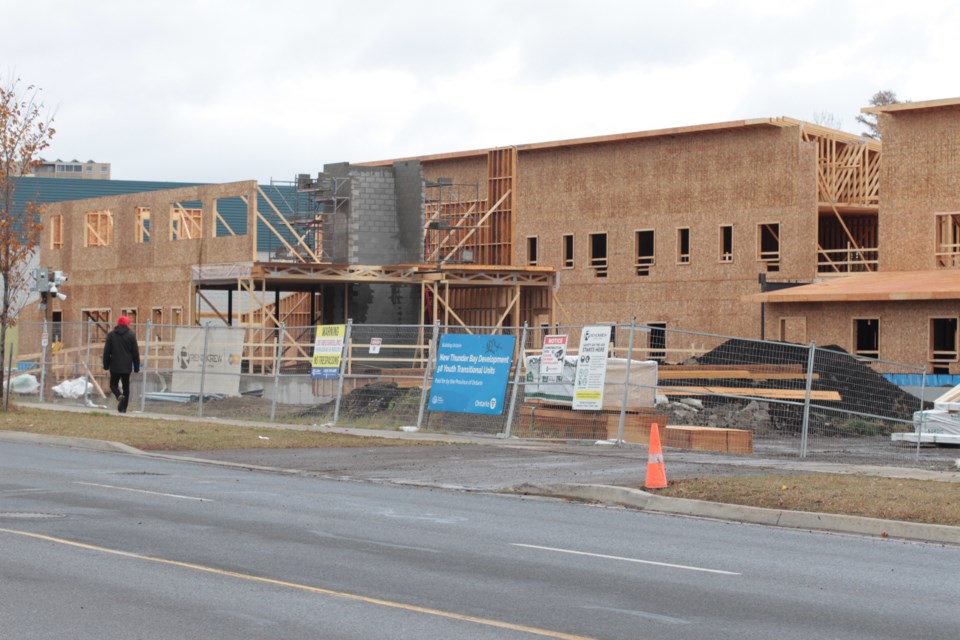THUNDER BAY – A transitional housing project for Indigenous young adults is on schedule to be complete by January 2026, according to officials with the Thunder Bay Indigenous Friendship Centre, which will be managing the new facility alongside the Metis Nation of Ontario.
It’s been seven months since the shovels went into the ground and construction is well underway on the 58-unit Ontario Aboriginal Housing Services project at 125 Junot Ave. S., beside the Boys and Girls Club.
Katie Bortolin, director of housing at the Thunder Bay Indigenous Friendship Centre, said the two-storey transitional housing facility will have a mix of group and independent living quarters.
Bortolin said anyone “Indigenous self-identified and at risk of homelessness” between the ages of 18 and 29 years of age is eligible to reside at the facility.
The facility will assist youth struggling with addiction by providing access to holistic and culturally appropriate on-site clinical support and employment and training programming provided by the Thunder Bay Indigenous Friendship Centre and the Métis Nation of Ontario.
Staff are on-site 24 hours a day.
Drugs and alcohol will not be permitted in the building because sacred medicines will be available. Bortolin said the Friendship centre "will support people where they are at."
"We do recognize that recovery is not always a linear journey, and we will support our participants through their own individualized care plan with a trauma informed lens," she said.
“It's offering them an opportunity to start from the beginning of their journey to redefine themselves and find their identity,” said Bortolin.
She noted that the last metric data on homeless youth collected from the Thunder Bay District Social Services Administration Board was in 2022.
They found that 68 per cent of people who identify as unhoused in Thunder Bay are Indigenous, Metis, or Inuit; 29 per cent of those people said they are youth under 34.
“I think it's a critical number that we need to really speak to in Thunder Bay. We are in the depths of a housing crisis. We are in desperate need of beds and for a safe space for people with wraparound services and support,” said Bortolin.
“And we will, with opening these doors, offer people spaces to walk out of unsheltered (living) into transitional housing, where we can identify the gaps they need to move them into independent living,” she continued.
The youth transitional housing project was first brought to City Council in 2018, but a lack of funding halted the project until the province provided the project with $ 8.7 million for construction.
